As a result, nerve signals are interrupted, leading to muscle weakness, numbness and many dangerous complications, which can even be life-threatening if not treated promptly.
Male patient had numbness in hands and feet for 3 days, after 7 days he could not walk.
Phu Yen General Hospital (Dak Lak) has just saved the life of a patient suffering from Guillain-Barré syndrome, a rare disease that only affects 1-2 people per 100,000 people each year.
A middle-aged male patient started with numbness in his limbs, which gradually increased over 3 days, and on the 7th day he was unable to walk, accompanied by difficulty swallowing, a warning sign of the risk of spreading to the respiratory muscles, threatening his life. Upon admission, the patient was taken to the Department of Neurology - Endocrinology to have a lumbar puncture, electromyography and tests to confirm the diagnosis of Guillain-Barré syndrome.
After an interdisciplinary consultation, the patient was transferred to the Intensive Care Unit for treatment with plasmapheresis. This is a modern technique that helps remove antibodies that attack the nerves, and is highly effective if performed early.
After a few days of treatment, the patient recovered quickly, could walk 80-90% compared to before, no longer had difficulty swallowing and the numbness and weakness in the limbs were significantly reduced. Currently, the patient's health is stable, his activities are almost normal and he continues to be monitored for recovery.
What causes Guillain-Barré syndrome?
The exact cause of Guillain-Barré is unknown. Researchers do not know why it affects some people and not others. It is not contagious or genetic.
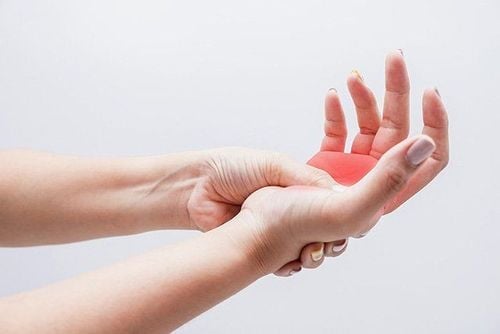
Guillain-Barré syndrome (GBS) can cause serious damage to the nervous system.
Because the body's own immune system causes the damage, Guillain-Barré is called an autoimmune disease. Normally, the immune system uses antibodies (molecules produced during an immune response) and special white blood cells to protect us by attacking microorganisms (bacteria and viruses). However, in Guillain-Barré syndrome, the immune system mistakenly attacks healthy nerves.
Most cases usually begin a few days or weeks after a respiratory or gastrointestinal viral infection. Occasionally, surgery can trigger the syndrome. In rare cases, vaccinations can increase the risk of Guillain-Barré. Recently, several countries around the world have reported increased rates of Guillain-Barré after Zika virus infection.
Symptoms of Guillain-Barré
Guillain-Barré syndrome often begins with weakness, tingling, or loss of feeling starting in the legs and feet and spreading to the trunk and arms.
These symptoms may begin in the fingers and toes, often without much notice. In some people, symptoms begin in the arms or even the face. As the disorder progresses, muscle weakness can develop into paralysis.
Signs and symptoms of Guillain-Barré syndrome may include:
- Tingling or loss of feeling in the fingers, toes, or both.
- Weakness or tingling in the legs that spreads to the upper body.
- Unsteady walking or inability to walk.
- Difficulty with eye movement, facial movements, speaking, chewing, swallowing.
- Severe pain in lower back.
- Difficulty controlling bladder or bowel functions.
- Very slow heart rate or low blood pressure.
- Shortness of breath.
Most people with Guillain-Barré syndrome experience the most significant weakness within three weeks of symptoms beginning. In some cases, signs and symptoms can progress very quickly, with complete paralysis of the legs, arms, and breathing muscles within a few hours.
Symptoms requiring immediate hospitalization
Seek emergency medical help if you have any serious signs or symptoms, such as: Itching that starts in the feet or toes and moves up the body; Itching or weakness that spreads quickly; Itching that involves both arms and legs; Difficulty breathing; Choking on saliva.
Guillain-Barré syndrome is a serious illness that requires immediate hospitalization because it worsens rapidly. The sooner appropriate treatment is started, the better the chance of a good outcome.
Source: https://suckhoedoisong.vn/te-tay-chan-lien-tuc-canh-giac-voi-benh-hiem-gay-anh-huong-nghiem-trong-den-he-than-kinh-169251106184244285.htm













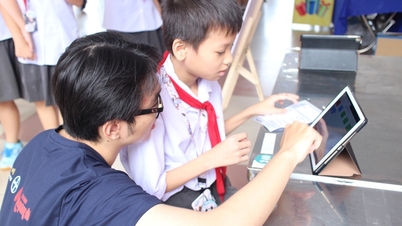

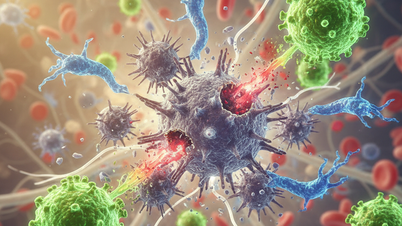















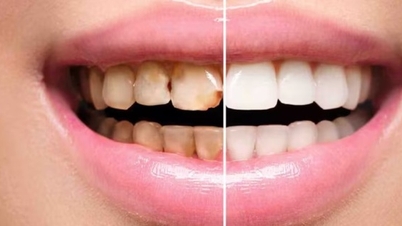

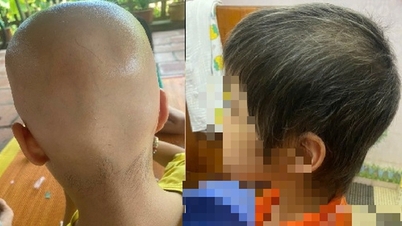




























































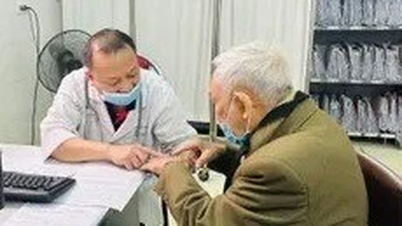


![Dong Nai OCOP transition: [Part 2] Opening new distribution channel](https://vphoto.vietnam.vn/thumb/402x226/vietnam/resource/IMAGE/2025/11/09/1762655780766_4613-anh-1_20240803100041-nongnghiep-154608.jpeg)













Comment (0)